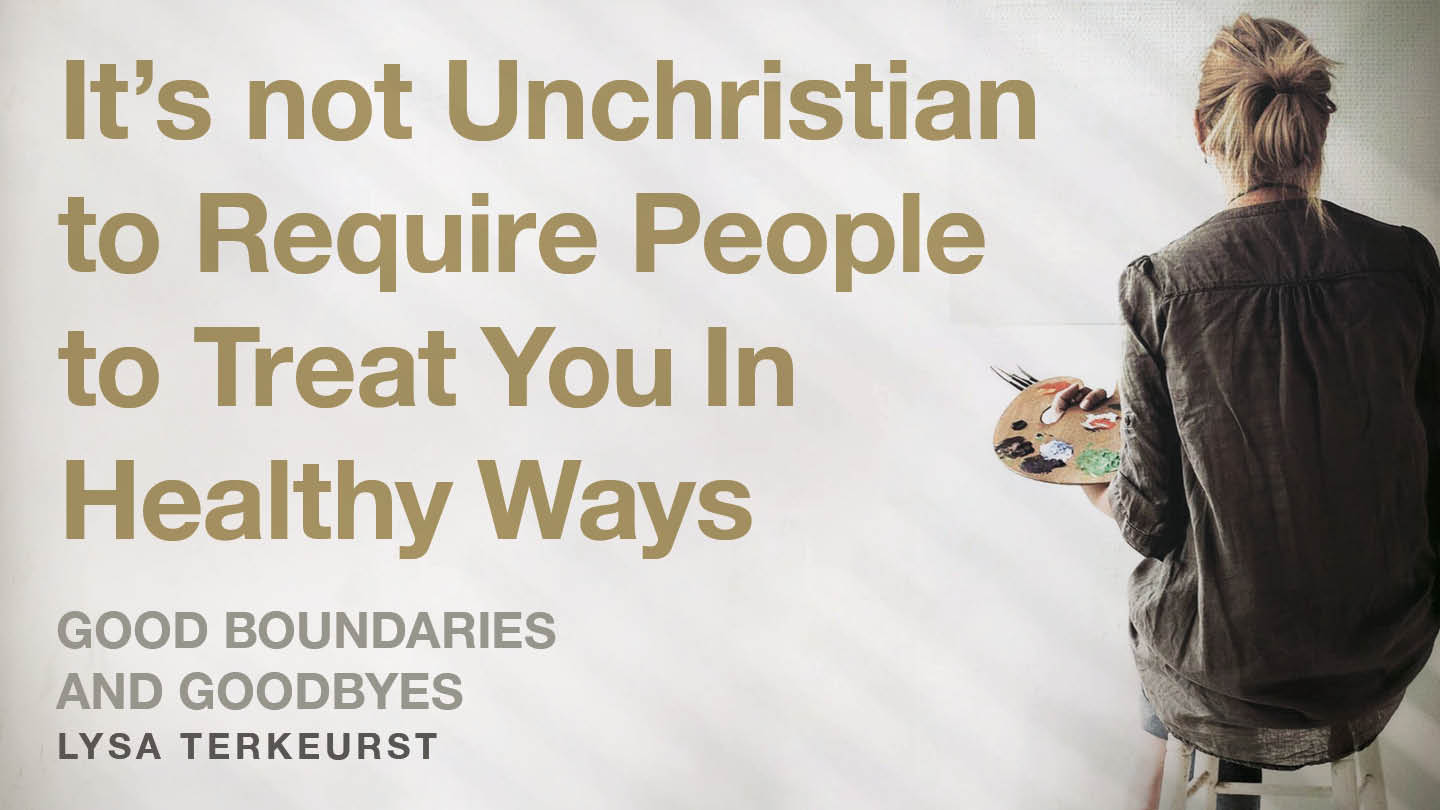Good Boundaries and Goodbyesনমুনা


I’ve been studying the life of Jesus a lot, looking at how He reacted when people hurt Him deeply.
I want to live like Jesus. But if I’m honest, it can feel so challenging to apply biblical principles at the same time when I’m experiencing relational hurt. I’ve been bumping up against this as I’ve been learning about establishing boundaries in some of my relationships.
And here’s what I’ve realized: Just like spending that gets out of control can bankrupt a person’s finances, expending too much emotionally can bankrupt a person’s well-being. We have emotional limitations.
I’ve tried to work around this. I’ve thought things like the more I do for people, the more Christian I am. There is good intention behind this. And on the surface, this mindset has a noble sense of self-sacrifice and Christian character, even hinting closely at some well-known Bible verses. However, we must remember to look at verses in full context.
Let’s look at John 15:13, for example, today. “Greater love has no one than this: to lay down one’s life for one’s friends.”
In the past, I thought this verse meant the greatest act of love I could show is to lay down my own life for the good of others, even when it’s to my own detriment.
Yes, Jesus literally laid down His one glorious life one time, and it was for a high and holy purpose. But Jesus didn’t lay down His life to enable evil, perpetuate unholy or irresponsible behaviors, or to try and keep others happy.
When Jesus makes this statement, He is speaking within a context when friendship in the ancient world was truly valued and sought after. This type of “friendship involve(s) the sharing of confidences, [and] possessions.” Love expressed and experienced between friends is a beautiful thing and shouldn’t be dismissed or overlooked. In our daily lives, we should want to share, and, within reason, give to our loved ones and friends. But here’s the caution: we can be a resource for them when needed, but we should not become the source of what sustains them.
The instruction here isn’t so much about our willingness to literally lose our life or sacrifice our needs to the point of self-detriment. Rather, Jesus is reminding us to have a willing spirit to show and extend a type of love that is honorable and willing to be self-sacrificial when necessary.
And from that place, I’ve come to understand having boundaries in our relationships isn’t selfish. It’s taking a step, realizing only God is limitless in His capacity.
If you have struggled with wondering if setting boundaries is biblical, here’s what I want you to know:
- It’s not unchristian to come to terms with our limited human capacity and set healthy parameters in our relationships.
- It’s not unchristian to require people to treat you in healthy ways. And for us to do the same for others.
- It’s not unchristian to call wrong things wrong and hurtful things hurtful.
We have to know how to spot dysfunction, what to do about it, and when to recognize it’s no longer reasonable or safe to stay in some relationships. But we can do all of this with honor and kindness, learning how to love others well without losing the best of who we are.
RESPOND: What verses have made you hesitant to set boundaries in your relationships? After what you’ve read today, how might your perspective have changed?
ধর্মগ্রন্থ
About this Plan

Is it unchristian to set a boundary or sometimes have to say a necessary goodbye? Lysa TerKeurst has asked these questions. But after countless hours of counseling intensives and theological research, Lysa is more committed than ever to loving people without losing the best of who she is. She wants to help you begin to do the same through this 5-day devotional.
More
Related Plans
30 Minute Daily Reading Plan

IHCC Daily Bible Reading Plan - June

Cast Your Care

The Complete Devotional With Josh Norman

Growth 360 Blueprint for Moms: Reflect, Refocus, and Activate Your Life for God’s Purpose

Daily Bible Reading— February 2025, God’s Strengthening Word: Sharing God's Love

Fear Not: God's Promise of Victory for Women Leaders

For the Least of These

Finding Wisdom in Proverbs
